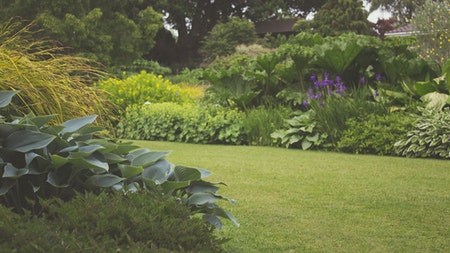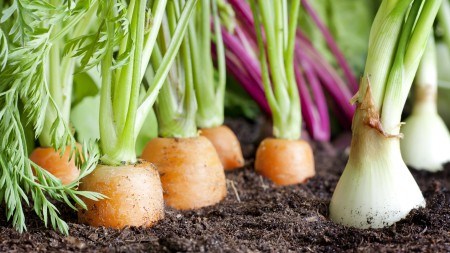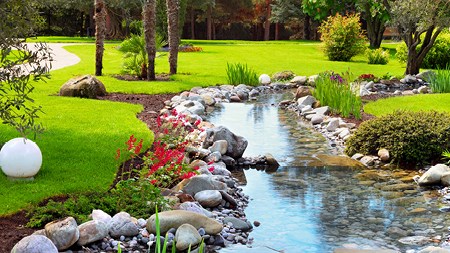Gardening tasks in any season vary, depending on your climate. In rainy, stormy regions, for instance, you will need to prune your trees and bushes back from powerlines, roofs, and gutters to avoid falling branches causing structural damage. In colder, high-frost regions you will need to protect sensitive plants from cold damage, even bringing them indoors if necessary.
Regardless of your local climate, mulching flower beds is always a good idea. Mulch protects roots from very low temperatures and minimises soil erosion caused by heavy downpours in winter rainfall areas. It may also be a good plan to cover or store outdoor furniture in very cold regions if it won’t be needed again until the spring season.
To-do list
One of the first tasks to put on your winter garden task list is clearing the debris from gutters and downpipes. This is particularly important in winter rainfall regions, as the weight of water in blocked gutters can rip them from roofs and walls.
Stodels Garden Centre in Cape Town has the following tips for winter gardening:
Trimming
In June fruit trees like apricots, peaches and plums are ripe for pruning.
Remove branches and stems on sweet peas to promote strong upward growth.
Other trees and shrubs that need to be pruned include autumn-flowering shrubs such as barleria, pride of India, ribbon bush, and wild dagga.
Cut back evergreen herbs like rosemary and thyme.
Roses need to be pruned after transplanting.
Plant and sow
Plant cool-season bedding plants such as alyssum, calendula, dianthus, lobelia, nemesia, pansies, sweet peas, and violas.
Azaleas, camellias, and liliums can be planted in dappled shade.
Add Brussels sprouts, kale, leeks, onions, radishes, turnips, and members of the cabbage family - broccoli, cabbage, cauliflower, and spinach - to your vegetable garden.
Feed
Remember to do some proper root-feeding before you hibernate.
Winter- and spring-flowering seedlings need organic fertiliser every two weeks, as well as weekly watering during drier spells.
Feed lemon trees with a 2:3:2 general fertiliser.
Feed bulbs with bulb food once every two weeks and water well.
Check the edges of sweet peas. If they’re brown and papery, feed with a 3:1:5 fertiliser.
General
Before it becomes too cold and wet to venture outdoors tick off tasks on the to-do list.
Move worm farms to a warmer spot out of the rain.
Adjust sprinkler systems to avoid overwatering.
Get pruning gear ready to trim fruit trees and roses. Sharpen loppers and secateurs and find your gardening gloves. Stock up on a good sealant for protecting freshly cut branches.
Treat winter lawns with care. Keep on mowing regularly because if grass grows too tall it can attract lawn fungi. Refrain from lawn dressing at this time of the year to avoid smothering the grass. Boost root mass with a 2.3.2 organic fertiliser.
Adding value
Lockdowns and strict social distancing requirements have caused many buyers to place a premium on having access to attractive outdoor spaces - from gardens to terraces, verandas, and even balconies – so time and money spent on taking care of these assets will be a worthwhile investment.




